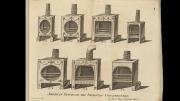John Glismann would like to learn the source of "Here's to the man who'll take my place when it's time for me to go."
John Havelock writes, "In early 1968, while working for his administration, I got my first tip-off that LBJ was not going to run again when he made a lightly reported speech, perhaps in a church, [with] lines to the effect that his heart was heavy and 'the springtime of man seems farther and farther away.' I have wondered [about] the full quotation and whether it was Lyndon's invention or came from an earlier source." Can a reader answer his question?
Cyrus Mody requests "the origin, or interesting uses, of 'moot for the nonce.'"
Addison Merrick seeks a source for "Memory is the only paradise man cannot be expelled from."
"upside-down format" (November-December 2003). Linda Liu Behar was first to suggest Happenstance (1993), by Carol Shields; William Batchelder first identified The Loving Couple (1956), by Virginia Rowans [Patrick Dennis]; Carol Buckley suggested Say It with Bricks: A Few Remarks about Husbands/Say It with Oil: A Few Remarks about Wives (1923), by Nina Wilcox Putnam and Ring Lardner; and Erik Ghenoiu suggested The Inner Side of the Wind, or the Novel of Hero and Leander, by the Serbian author Milorad Pavic (1991; 1993 in English translation).
"amnesiac ex-girlfriend" (November-December 2003). Gail Banks was first to recognize the reference to Margot Livesey's novel The Missing World (2000).
"Marriage...a bag of snakes" (November-December 2003). Charles Maurer traced the remark to Sir Thomas More's Dialogue concerning heresies and matters of religion (1528; bk 1, ch. 26): "I have heard my father [Sir John More] merrily say every man is at the choice of his wife, that you should put your hand into a blind bag full of snakes and eels together, seven snakes for one eel, you would I ween reckon it a perilous choice to take up one at adventure though you had made your special prayer to speed well." The text appears in Saint Thomas More (1957), by E.E. Reynolds. In John Campbell's Lives of the Lord Chancellors (1846), Maurer added, a paraphrase runs: "He would compare the multitude of women which are to be chosen for wives unto a bag full of snakes, having among them a single eel: now, if a man should put his hand into this bag, he may chance to light on the eel; but it is a hundred to one he shall be stung by a snake."
"Oblivion" (November-December 2003). Anthony Shipps was the first to identify the last stanza of Ralph Waldo Emerson's poem "Waldeinsamkeit."
Send inquiries and answers to "Chapter and Verse," Harvard Magazine, 7 Ware Street, Cambridge 02138.




